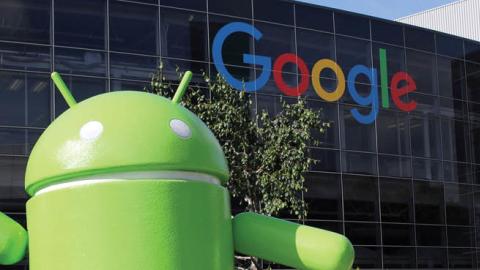Big Tech is strongly criticized in Congress these days, but it still has sway in Washington when it lobbies Congress to weaken the U.S. patent system. That’s bad news for everyone.
Years ago, Big Tech changed its business strategy. Previously, these tech companies would buy or license patent rights to new technologies — paying for the use of other people’s inventions. But now, Big Tech steals these inventions.
This blatantly violates intellectual property laws. But Big Tech has gobs of money to deal with the consequences. Companies like Apple and Google have hundreds of billions in cash reserves — orders of magnitude more than small businesses earn in total yearly revenues. So, Big Tech engages in “predatory infringement” because it’s cheaper to steal than to respect the law.
But what makes “predatory infringement” cheaper? Big Tech has made it impossible for its victims — individual inventors, startups, and small companies — to obtain their rightful remedies.
Predatory infringement works as a business strategy because Big Tech has lobbied its political allies in Washington to rewrite the patent laws in its favor. As a result, Big Tech rarely pays for the significant harm it causes in stealing patented technologies in the first place.
One of these many changes in the patent system occurred a decade ago — back when Google lobbyists frequently met with the president and Big Tech was spending millions lobbying Congress. These political efforts paid off. A new patent law in 2011 created a special tribunal in the U.S. Patent and Trademark Office whose primary purpose is to invalidate patents. It’s called the Patent Trial and Appeal Board, or PTAB.
The PTAB was created with the enthusiastic support of Big Tech. Big Tech has also been the biggest user of the PTAB. The top five PTAB petitioners are Big Tech firms — Google, Apple, Samsung, Microsoft, and LG Electronics.
Given its birth in Big Tech lobbying, the PTAB quickly became a “patent death squad.” It invalidates a whopping 84% of at least part of the patents in the cases it decides. More than 38,000 patent claims have been canceled by the PTAB.
These high kill rates and other procedural shenanigans led to some reform efforts. In 2020, the U.S. Patent and Trademark Office adopted a modest reform to impose some procedural limits on when the PTAB would decide to review patents. Under these so-called “Fintiv factors” — named after the patent-owner in the Apple v. Fintiv case — the PTAB may reject a petition challenging a patent if the parties are already litigating in court and the court is close to a final judgment.
Before the Fintiv factors were adopted, Big Tech companies would attack an inventor or small company in two places at once — the PTAB and federal court — counting on the PTAB to throw out the patent before the defendant had to face judgment in the court case.
In response to this one reform at the PTAB, Big Tech went nuclear. Seeking to undo it, Big Tech filed a lawsuit and pursued appeals all the way to the Supreme Court. Its legal challenges were summarily rejected.
So Big Tech went back to Congress to repeat its successful lobbying efforts that first created the PTAB. Unlike its court challenge, its political efforts have proven more successful. Senators Patrick Leahy and John Cornyn introduced the “Restoring the America Invents Act” bill that would eliminate the Fintiv factors and expand the PTAB’s operations and powers in other ways.
A new version of the bill was just released on June 16, and Congress will begin holding hearings on June 23. It’s now called the “Patent Trial and Appeal Board Reform Act.” It still throws out the Fintiv factors and expands the ability of Big Tech to challenge patents at the PTAB in other ways.
If Big Tech wins and either bill is enacted into law, it will represent another blow to the U.S. innovation economy. The PTAB has destabilized the patent system by placing a cloud of uncertainty over any valuable patent. Big Tech’s sticky fingers and the “patent death squad” at the PTAB are now a reality for all inventors, startups, and small companies.
Before the PTAB and Big Tech’s predatory infringement strategies, reliable patent rights launched the computer and smartphone revolutions. Patents also made possible the biotech revolution with new treatments for diabetes, cancer, and other medical miracles, like mRNA vaccines.
Congress should preserve the patent system and support the U.S. innovation economy, especially when we face increasing challenges from global competitors like China. It’s time to say no to Big Tech’s continuing political machinations in weakening the patent system.
Read in Issues and Insights




















